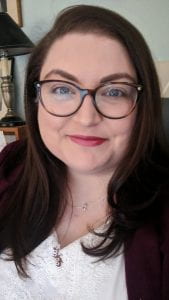Has there ever been a time when HR professionals have played a more critical role than during the COVID-19 pandemic, or now in our post-pandemic world? Every day, members of the profession step up and serve as business partners in their organizations. That kind of responsibility requires wide-ranging knowledge, initiative and communication skills.
 Helping HR professionals build these competencies is a shared mission of both SHRM and Northeastern University’s College of Professional Studies. At Northeastern, we recognize the value of SHRM’s professional certifications and the hard work and subject mastery that goes into achieving them. To that end, we grant transfer credit to our graduate certificate and master’s programs to qualified applicants who hold the SHRM-CP or SHRM-SCP or the SHRM People Analytics Specialty Credential. This credit transfer represents a savings of 7 percent to 20 percent of program tuition costs, and accelerates the student’s progression to a graduate degree. (Find more information about the graduate program and credit opportunity here.)
Helping HR professionals build these competencies is a shared mission of both SHRM and Northeastern University’s College of Professional Studies. At Northeastern, we recognize the value of SHRM’s professional certifications and the hard work and subject mastery that goes into achieving them. To that end, we grant transfer credit to our graduate certificate and master’s programs to qualified applicants who hold the SHRM-CP or SHRM-SCP or the SHRM People Analytics Specialty Credential. This credit transfer represents a savings of 7 percent to 20 percent of program tuition costs, and accelerates the student’s progression to a graduate degree. (Find more information about the graduate program and credit opportunity here.)
I interviewed a recent alumna, Kaitlynn Greene, SHRM-CP, to hear about her extraordinary commitment to lifelong learning. Earlier this year she received her M.S. in leadership with a concentration in HR management, and is now the employee engagement coordinator for a commuter services company.
Carl Zangerl: Tell us a little about your professional background and your involvement with SHRM.
Kaitlynn Greene: My undergraduate degree was in psychology, and I started my career in a couple of really customer-centric roles. Those positions turned out to be a great background for my eventual move into HR.
My first HR role was in talent acquisition operations at a large financial company. As an employee onboarding specialist, my team moved candidates from the point of accepting an offer through to their first day of work. Later I was promoted to recruit and manage the university relations program for one of the company’s business areas. I was responsible for early talent development and created a competitive recruitment plan for interns and co-op employees at the graduate and undergraduate levels.
Recently I started working in employee engagement in the public transportation field. My company operates and maintains the city’s commuter rail system, helping its authorities meet the needs of passengers and their communities.
Zangerl: What motivated you to earn a SHRM certification?
Greene: Finding an HR role had been a major goal of mine. When I started my first HR job, I was eager to strengthen my knowledge. I was also looking to the future—I wanted to be able to demonstrate my competencies in many areas of HR, not just the one I was working in at the time. I knew that having the SHRM-CP credential under my belt would help me communicate my commitment to learning and to HR in general. I earned my SHRM certification in 2017.
Zangerl: When you were considering graduate programs, was the opportunity to transfer credits based on your SHRM certification a factor in helping you decide to pursue your master’s degree at Northeastern?
Greene: It was definitely a factor in my decision. What’s more, I started the master’s program after a layoff, so the opportunity to move through it a little more quickly while saving on costs was a big benefit to me.
Zangerl: How did pursuing your master’s contribute to your growth as an HR professional?
Greene: I’m really interested in how leadership affects organizations, and in how to build organizational leadership that takes a company to the next level. In completing the coursework for my master’s degree in leadership, I gained knowledge of areas that weren’t really covered in my bachelor’s degree classes in psychology—like business strategy. The program also gave me the chance to do deep dives into leadership theories and specific areas of HR. I was fortunate to have great teachers at Northeastern who covered such topics as developing organizational leadership, coaching in challenging times, and strategic workforce planning. I came out of the program much more well-rounded than when I came in.
Posted by Carl Zangerl, Faculty
NOTE: This interview was first published in the July 15, 2021 issue of the SHRM Certification Update.